The IBES Catalyst Research Award is an annual award that supports Brown University faculty in pursuing research that aligns with IBES’s goals of accelerating exploratory and emerging research with the potential to impact communities and engage with non-academic partners. Meet this year’s Catalyst recipients and learn more about how they plan on utilizing their grants.
IBES announces 2025 Catalyst Research Awardees
IBES awarded grants to six core and affiliate faculty members, allowing them to conduct research that crosses boundaries and benefits communities, both at Brown and around the world.
Scott Frickel and Corwin Zigler
Improving Public Health Education and Environmental Risk Assessment through Historic and Contemporary Land Use Data
We really need to understand who is most vulnerable to any health risks posed by an evolving urban environment. Part of this understanding will come from data, and part will come from the social history that has sorted people alongside industrial activity across Rhode Island. This is such an exciting opportunity to learn how diverse research perspectives can unite to better understand environmental risk.
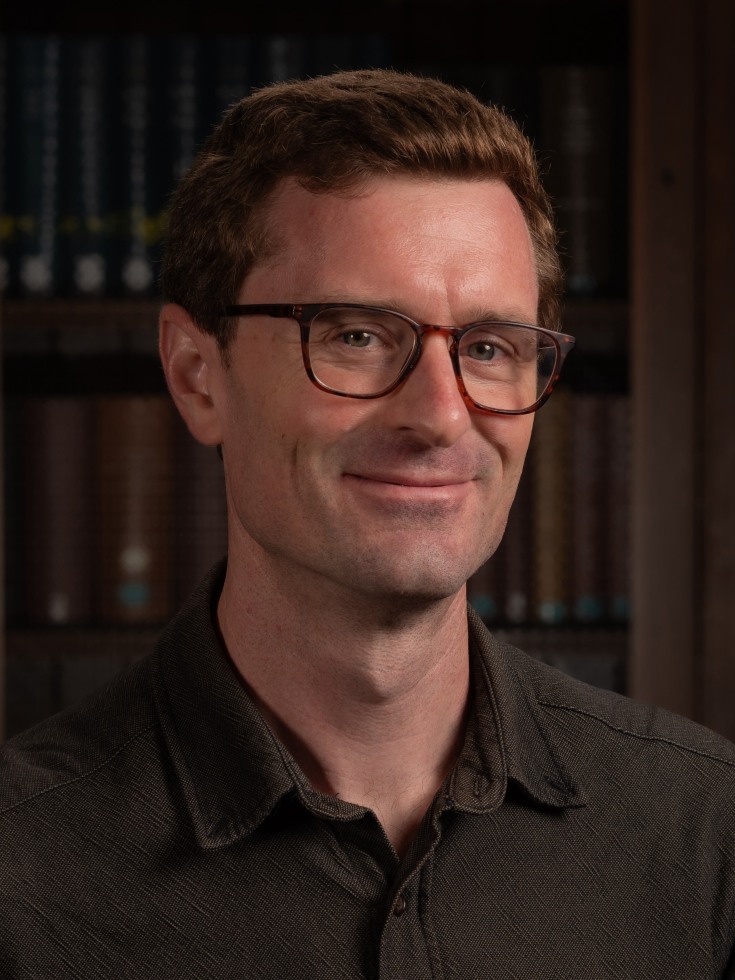
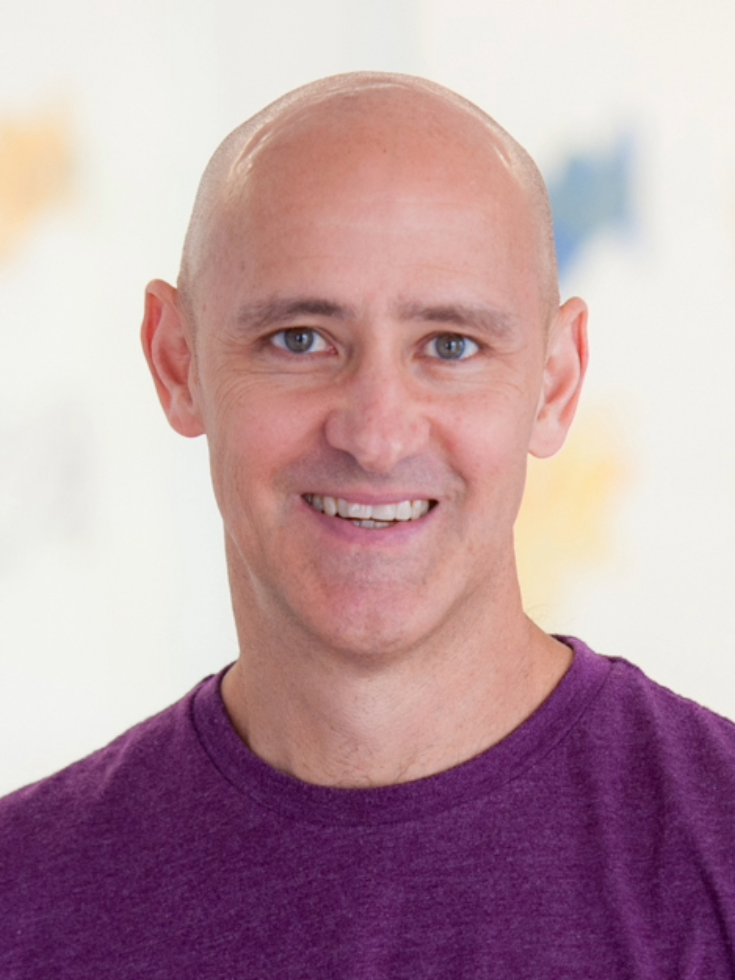
Frickel, Professor of Sociology and Environment and Society, and Zigler, Professor of Biostatistics and an IBES affiliate, are collaborating to address a persistent challenge in environmental health: the lack of systematic data on past industrial land uses and their legacy contaminants. In many urban areas, the majority of historical industrial sites remain undocumented, and the contaminants left behind in soil and groundwater go unmonitored, posing ongoing risks to public health. This project combines historical land use records with modern spatial data science methods to produce neighborhood-level risk assessments and support proactive environmental health interventions in Rhode Island.
Together, Frickel and Zigler aim to:
- Integrate historical and contemporary data to map industrial land uses and infrastructure features across Rhode Island
- Link specific industrial activities to known contaminants and associated health risks
- Develop machine learning models to generate neighborhood-level composite environmental risk scores
- Collaborate with the Rhode Island Department of Health to design web-based tools that inform public health outreach, risk communication, and green infrastructure planning
- Create a public data interface with interactive maps, address-level lookups, and educational content on contaminant sources and exposures
- Build scalable methods and datasets that can be extended to other cities and regions facing similar legacy contamination challenges
Mara Freilich
Community Science for Environmental Justice at the Salton Sea
Our research at the Salton Sea … takes a fundamental science approach to a complex system while engaging with and responding to community needs in order to support efforts to make concrete improvements in peoples' lives. For me, this research is unique because in addition to performing sampling in an extreme and difficult to access environment, we get to work with many talented local students and host workshops for enriching conversations with community members.
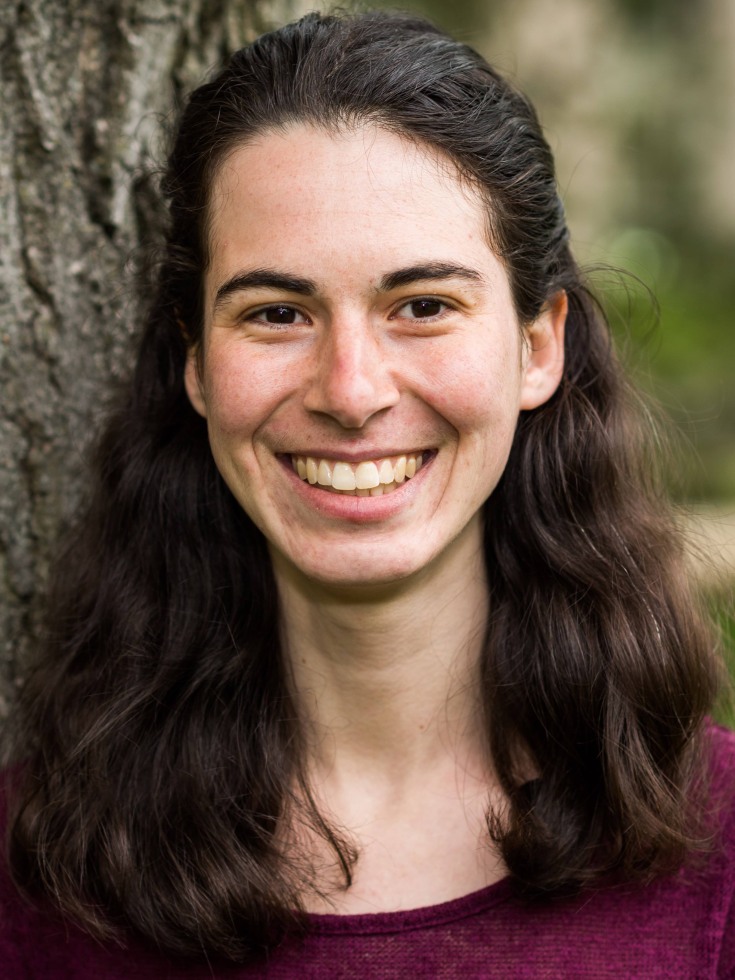
Building on a community science program co-led with Alianza Coachella Valley, Freilich, Assistant Professor of Earth, Environmental, and Planetary Sciences and an IBES affiliate, will partner with Salton Sea residents to investigate the drivers and health impacts of hydrogen sulfide emissions from the rapidly shrinking Salton Sea. This hypersaline lake in Southern California, bordered by predominantly Latinx and Torres Martinez Desert Cahuilla Indian communities, is undergoing extreme ecological and environmental change due to decades of water mismanagement, climate change, and the 2003 Quantification Settlement Agreement.
Working alongside youth and community scientists trained through the Salton Sea Environmental Timeseries, Freilich and her team will:
- Conduct sequencing to identify microbial communities driving hydrogen sulfide production in water, mudflats, and exposed shoreline
- Measure hydrogen sulfide emissions across varying shoreline types and exposure timelines
- Co-develop research questions and results interpretation through bilingual workshops, public webinars, and structured peer feedback sessions
- Empower residents to use scientific data in advocacy and environmental decision-making
Kevin Escudero
I Taotao Tåno (People of the Land)
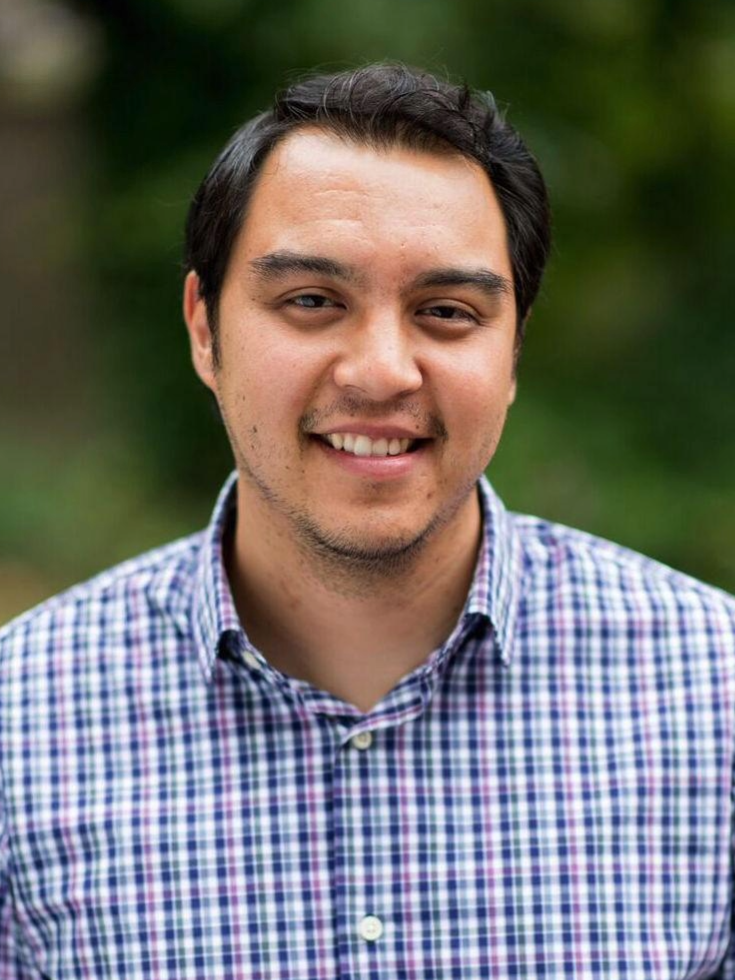
Escudero, Associate Professor of American Studies and Ethnic Studies and an IBES affiliate, investigates Indigenous-led environmental justice organizing in Guåhan (Guam), with a focus on how CHamoru activists and their allies articulate and enact land as a shared relation. Through ethnographic fieldwork and community-based research with organizations such as the Yo’Åmte Project, Escudero will use his Catalyst Award to explore how environmental justice efforts in Guåhan center Indigenous epistemologies while fostering coalition-building between Indigenous CHamoru and Asian settler communities.
Building on long-standing community relationships and his extensive ethnographic work in Guåhan, Escudero will:
- Conduct ethnographic fieldwork with CHamoru and Filipinx environmental justice organizers in Guåhan
- Analyze how Indigenous CHamoru values, such as inagofli’e (deep relational engagement), inafa’maolek (striving for harmony), and chenchule’ (reciprocity), inform activism and community-based environmental stewardship
- Advance Escudero’s book manuscript, Imperial Unsettling
- Collaborate with community-based organizations to co-produce knowledge in support of environmental and cultural health
- Develop and teach a Brown University Global Experiential Learning and Teaching (GELT) course on Native Pacific Islander environmental justice activism, to be held in Guåhan in collaboration with local partners
Tyler Kartzinel
HelmBank and the Future of Wildlife Parasite Surveillance
The Catalyst Award creates the intellectual spaces we need to incubate transformative ideas and technologies that cross disciplines within IBES and have a high likelihood of spilling over to have a positive impact on real-world environments.
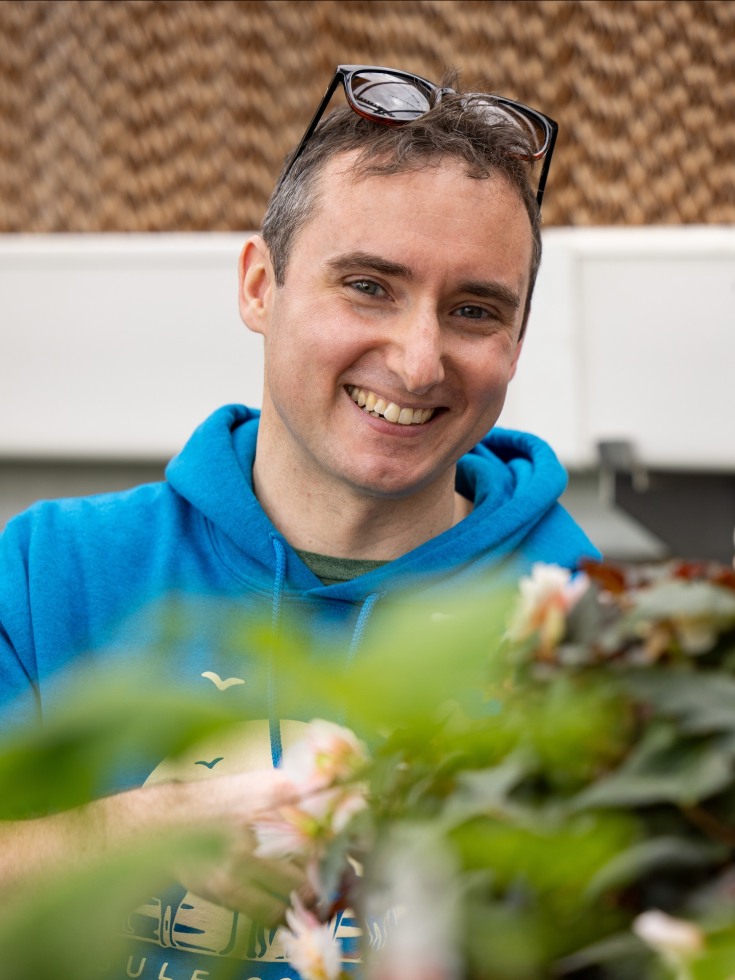
Kartzinel, Associate Professor of Environment and Society and Ecology, Evolution, and Organismal Biology, is conducting research at the intersection of global health and conservation to better understand parasitic worms that circulate among wildlife, humans, and livestock. While these parasites pose significant threats to health and biodiversity, especially in tropical regions, traditional research methods are limited in scope and poorly suited to field settings. The HelmBank initiative, developed in partnership with community organizations across Central and South America, aims to modernize wildlife parasitology by building a genome-enabled, expert-verified reference database for parasite identification.
This Catalyst-funded initiative will address major gaps in parasite surveillance by:
- Establishing HelmBank, a public genetic database to support rapid and accurate parasite identification
- Using portable DNA sequencing technology to generate barcode data from parasites found in wildlife
- Training community partners and students through a new field-based “CURE” course hosted in Costa Rica
- Enabling better diagnostics, rehabilitation, and release of threatened species admitted to wildlife hospitals
- Supporting conservation and public health efforts at the human-animal-environment interface
- Building foundational data for future research on zoonotic disease risks and biodiversity monitoring in tropical ecosystems
Lukas Rieppel
Earth History and Extractive Capitalism in Lakotan Treaty Lands
As a historian of science, I'm thrilled to have an opportunity to produce a collaborative and place-based exhibit about the deep history of Lakotan treaty lands. This kind of community engaged scholarship would not have been possible without the material support of an IBES Catalyst Research Award.
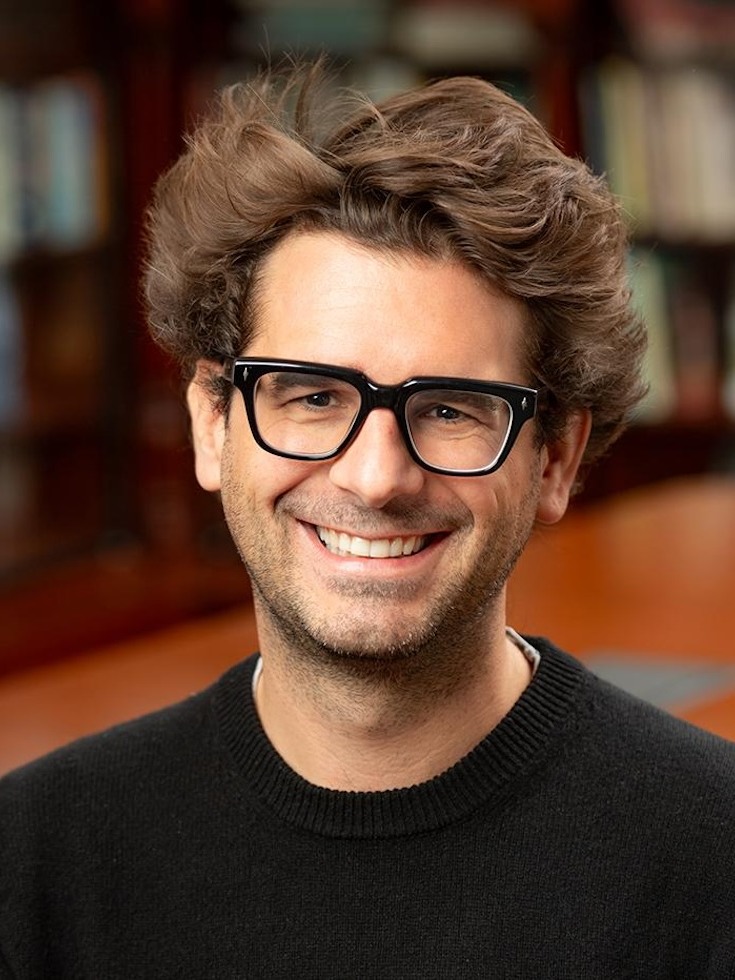
Rieppel, Associate Professor of History and IBES faculty affiliate, explores how Earth science became entangled with extractive capitalism and settler colonialism in the Upper Missouri River Basin. Focusing on Lakotan treaty lands, recognized by the U.S. in the 1868 Fort Laramie Treaty, his research traces how 19th-century geologists and paleontologists used fossils to naturalize settler claims to Indigenous lands, repurposing prehistoric remains as evidence for narratives of extinction and evolutionary progress that justified dispossession.
Building on a multi-year collaboration with Craig Howe (Oglala Lakota), director of the Center for American Indian Research and Native Studies (CAIRNS), Reippel will use his award to:
- Conduct archival and historical research for a book-length study on the temporal and territorial dimensions of U.S. imperial science in Lakotan treaty lands
- Support the co-creation of a museum exhibit at CAIRNS that reimagines the display of fossils from the White River Badlands
- Commission new works by contemporary Lakotan artists and writers to be featured in the exhibit
- Co-author a scholarly article with Howe that outlines the exhibit’s methods and goals as a model for tribally driven approaches to natural history interpretation